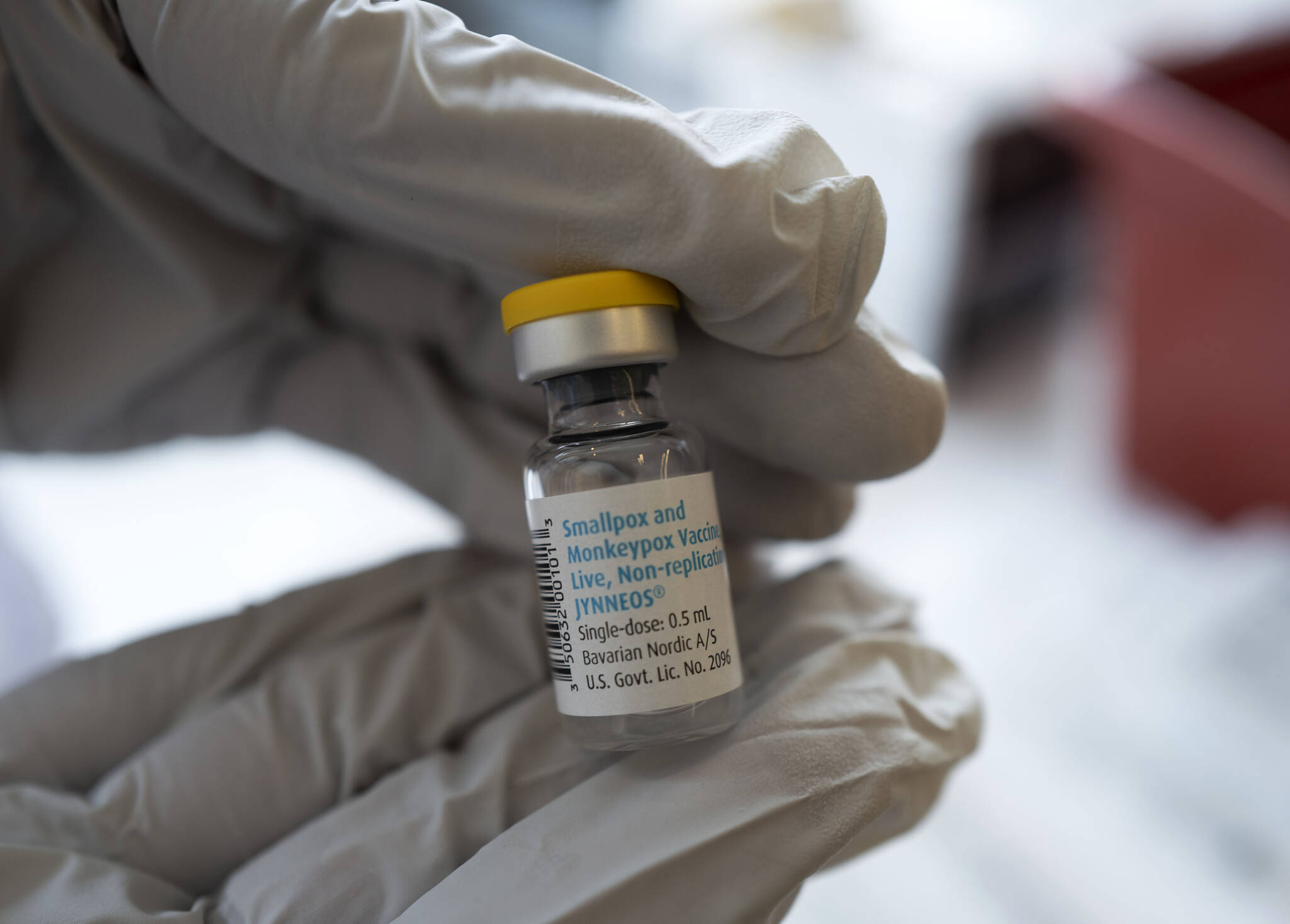Limited monkeypox vaccines are available at the Kenai Public Health Center for those eligible.
Alaska reported its first case of the monkeypox outbreak, which was declared a public health emergency by the World Health Organization, at the end of July. The case was in an Anchorage resident who was identified as a close contact of someone who had recently traveled outside of Alaska.
Data from the U.S. Centers for Disease Control and Prevention show that Alaska has reported three cases to date. About 17,400 cases have been reported nationwide.
Public Health Nurse Christina Kilby said Thursday that the center cannot open vaccinations to the general public and is targeting high-risk individuals due to limited supply. Currently, Kenai Public Health is the only place on the peninsula offering monkeypox vaccination.
Kilby said there’s already been some interest in vaccination among people on the peninsula, who have reached out to the Kenai Public Health Center. The JYNNEOS vaccine has been authorized for emergency use in the United States for the prevention of monkeypox.
The Alaska Department of Health’s Division of Public Health announced earlier this month that it would expand access to the vaccines. Vaccines are currently recommended for people who have been exposed to monkeypox and for gay, bisexual or other men or transgender individuals who have have sex with men and have had multiple or anonymous sexual partners within the past six months.
Kilby emphasized Thursday that anyone who feels like they may be at risk should call the Public Health Center for screening at 907-335-3400.
Kilby described the current inoculation process as “by invitation,” which allows center staff to ensure patients are eligible to be vaccinated and to extend confidentiality for those seeking a vaccine. Upon calling the center, Kilby said staff have a screening form used to verify that the person calling is eligible to schedule an appointment.
“Unfortunately, unlike COVID, this particular infection and the population it started in, does have some stigma with it, so we also recognize that people want that confidentiality,” Kilby said.
According to the CDC, many, but not all, of reported monkeypox cases have occurred among gay or bisexual men. Anyone can contract monkeypox, which is not exclusively spread through sexual conact.
Monkeypox spreads through close, personal and, often, skin-to-skin contact, according to the CDC. That includes direct contact with a monkeypox rash or body fluids from someone with the virus, touching objects or fabrics that have been used by someone with monkeypox, and contact with respiratory secretions.
Direct contact, the CDC says, can include intimate contact, such as oral, anal or vaginal sex, hugging or kissing, prolonged face-to-face contact or touching things that were used during sex by someone with monkeypox and have not been disinfected.
Symptoms of the monkeypox virus can include fever, headache, muscle aches, swollen lymph nodes, chills, exhaustion and respiratory symptoms, according to the CDC. Also associated with the monkeypox virus is a rash, which can look like pimples or blisters and may be painful or itchy, located on or near the genitals or anus. A rash may also appear on other body parts and will go through several stages, including scabs, before healing.
Monkeypox illness typically lasts between two and four weeks, with symptoms usually starting within three weeks of exposure to the virus. Most people with monkeypox will develop a rash, the CDC says.
People with close contact exposure to monkeypox, the Alaska Department of Health and the Anchorage Health Department said Friday, are “generally advised” to reach out to a clinician or public health center for evaluation. Close contacts and people living with someone infected with monkeypox should wear a face mask, limit skin-to-skin contact and wash their hands frequently with soap and water.
More information about the monkeypox virus can be found on the CDC’s website at cdc.gov/poxvirus/monkeypox. Additional information about monkeypox in Alaska can be found on the Department of Health’s website at health.alaska.gov/dph/Epi/id/Pages/Monkeypox.aspx.
Reach reporter Ashlyn O’Hara at ashlyn.ohara@peninsulaclarion.com.

